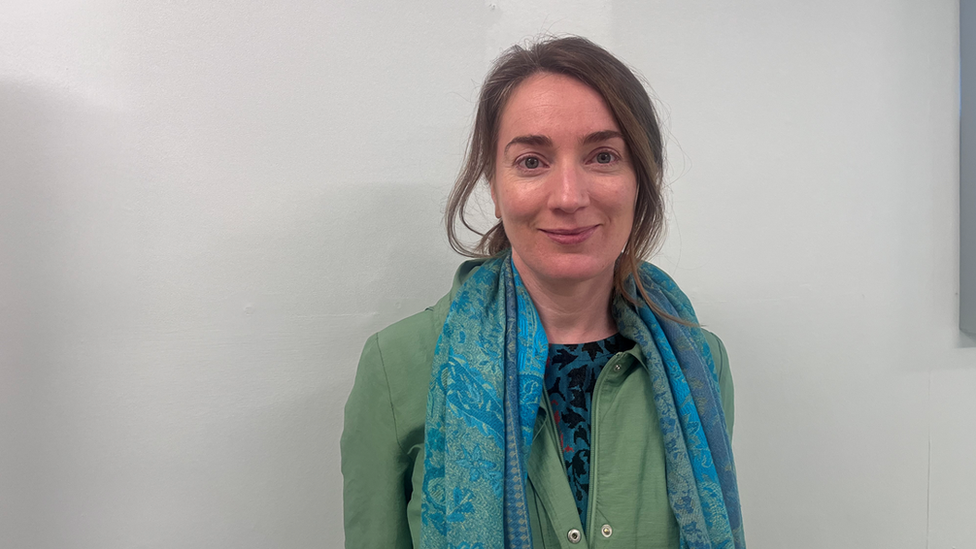Six hotels used to accommodate asylum seekers to close
- Published

Six hotels currently housing asylum seekers in Belfast are due to close early in 2024.
The government announced its plans to end contracts with 50 hotels across the UK by the end of the year.
Currently there are about 400 hotels being used to house asylum seekers across the UK; 363 are in England, 10 in Scotland and two in Wales.
Close to 3,000 asylum seekers are living in Northern Ireland, with 1,300 housed across 20 hotels.
Mears, a Home Office contractor for accommodation, said at least 100 asylum seekers will be impacted by the closures.
The government plans to close more of these hotels later in 2024.
All of those affected are waiting for decisions on their asylum status.
In August, the number of people in the UK waiting for a decision on their asylum claims hit a record high.
'No choice'
Liz Griffith from the Law Centre NI said the organisation was supportive of the decision to close the hotels, although she added its reasons were "probably different from the government".
"Specifically, we think that prolonged stays in hotels are really damaging for people's health and wellbeing, but particularly for those families with children," she told BBC Radio Ulster's Evening Extra programme.

Liz Griffith from the Law Centre NI said she hoped asylum seekers would be put into accommodation in local communities where integration can take place
"A hotel is not a home, when people think of hotels they think of luxury accommodation. These hotels are not like that, all those luxuries are stripped back, the children, in particular, they have nowhere to play, there's very little privacy, there's a lot of restrictions on what you can and cannot do.
"So we welcome the decision to move people out of the hotels."
Ms Griffith said the way asylum accommodation is allocated is "clearly on a no-choice basis and this is just one of the many indignities of the hostile environment that asylum seekers are subjected to".
"You have no choice about where you live, you have no choice about how long you stay in the system, so there is a big question mark about where are people who are coming out of the hotels going to go?
"But what we would hope is that they would be put into local accommodation in local communities where integration can take place."
In an email from the Home Office, seen by the BBC, Northern Ireland's MPs were told: "Residents currently accommodated in the hotel will be moving to other parts of our asylum estate.
"They will be notified a minimum of five days in advance and moved by the Home Office in line with our existing published policies.
"Whilst we expect impacts on local authorities to be minimal, we are putting in place additional resource to work with our accommodation providers and local partners to manage this process and minimise disruption, particularly focusing on families."
It continued: "As the Home Office ends the use of asylum hotels, we will continue to work with you to increase the supply of dispersal accommodation in line with your regional plan.
"Dispersal accommodation is significantly cheaper for the taxpayer and far less impactful on local communities."
Related topics
- Published23 November 2022

- Published8 September 2021

- Published29 May 2021
